Attributes
Attributes
In order to achieve our Student Outcomes, the school believes that equal emphasis needs to be given to a broad spectrum of attributes. The CHAMPS Leadership Programme integrates the various efforts of the school to build skills and competencies in our students to first become leaders of self, before they proceed to lead others.
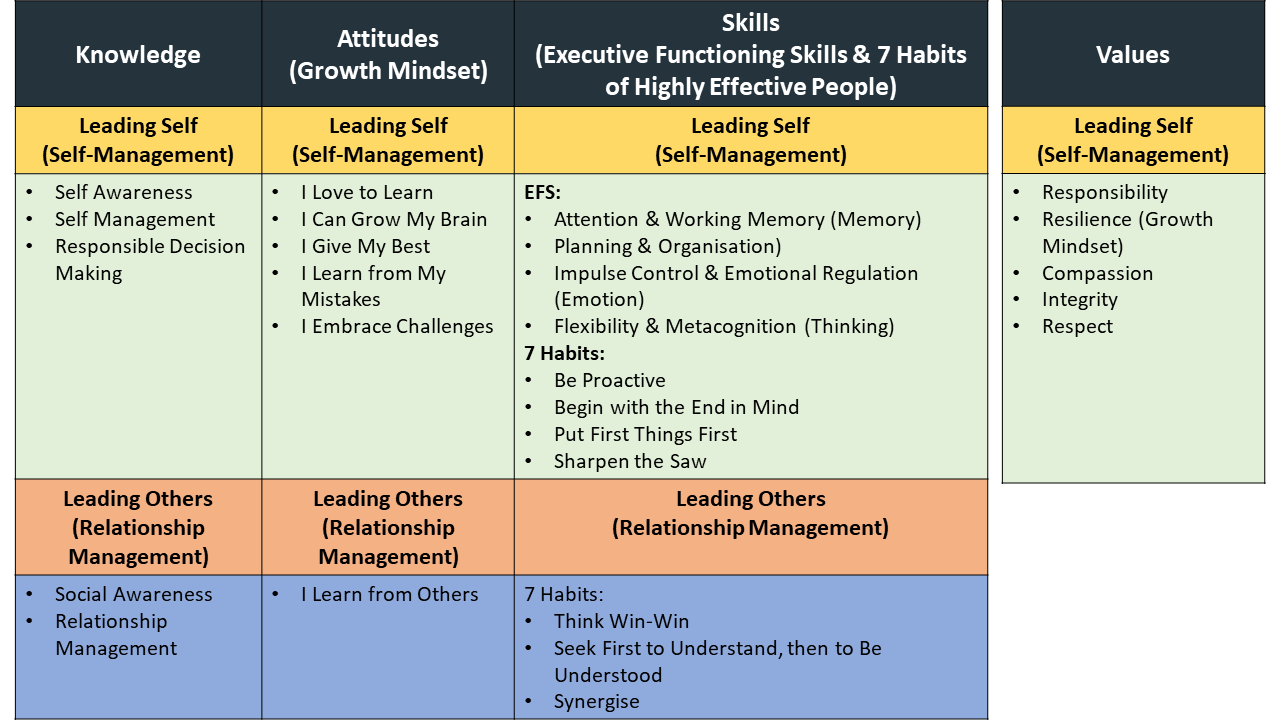

There are 4 key components in the CHAMPS Leadership Programme:
1) A strong anchor on the school values of Responsibility, Resilience, Compassion, Integrity and ResPEct provide our Kranjians with the recipe for success.
2) The socio-emotional competencies of self awareness, self management, social awareness, relationship management and responsible decision making are taught to the students as part of the CCE(FTGP) curriculum.
3) Growth Mindset is adopted to instil in students the mindset that it is okay to make mistakes and the importance of reflecting and growing.
4) Through Executive Functioning, the school aims to equip in students important skills they need to achieve their goals. The school has also introduced the 7 Habits of Highly Effective People (Leader in Me) concepts to the students as an extension of Executive Functioning Skills. The aim is to build self-leadership in students so that they take ownership of themselves and their learning.
The above are conducted and taught to all KPS students and they are designed to build the values, knowledge, skills and attitudes required of a future-ready learner.
1. Values – Recipe to Success
Responsibility, Resilience, Compassion, Integrity, ResPEct
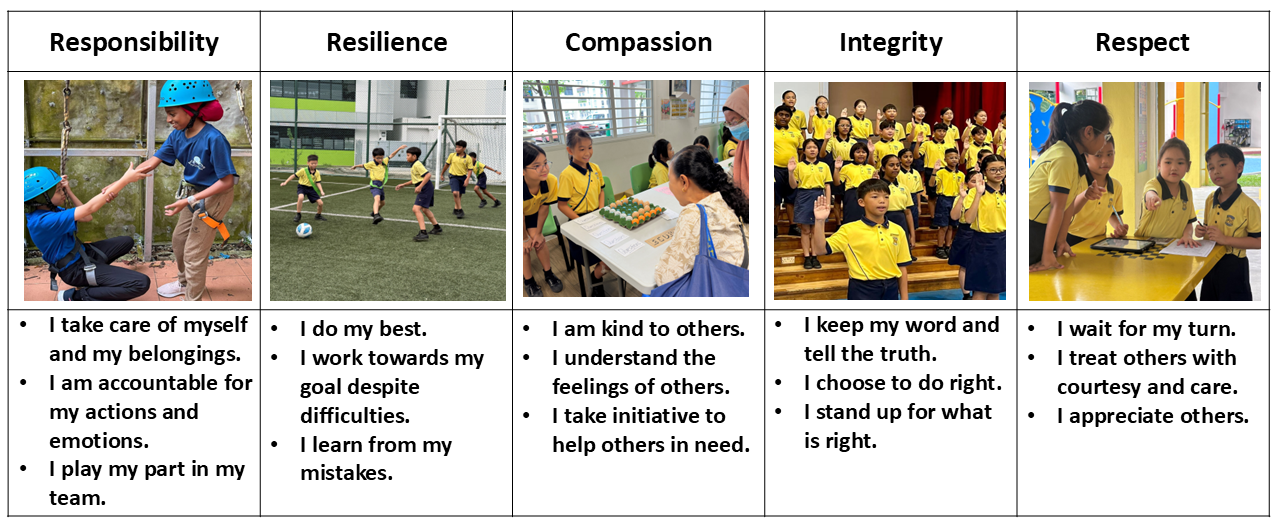
2. Skills
Through Executive Functioning Skills, the school aims to equip in students important skills they need to achieve their goals. The school has also introduced the 7 Habits of Highly Effective People (Leader in Me) concepts to the students. The aim is to build self-leadership in students so that they take ownership of their learning.
Executive Functioning Skills
For our Lower Primary students, Executive Functioning Skills (EFS) have been identified as pre-requisite skills necessary in every child in order for learning and engagement to take place. Executive functioning skills also equip students with strategies that help them to manage their personal behaviour as well as interact in an appropriate manner with teachers and peers. Four EFS clusters have been selected that are deemed most relevant to our lower primary students – Memory, Organisation, Emotion and Thinking. These are natural upstream articulations of the 7 Habits that are deemed to be more accessible for Lower Primary students. Bite-sized packages for Primary 1 and 2 have been created, with emphasis on allowing our students to experience EFS through hands-on activities with their peers and teachers.
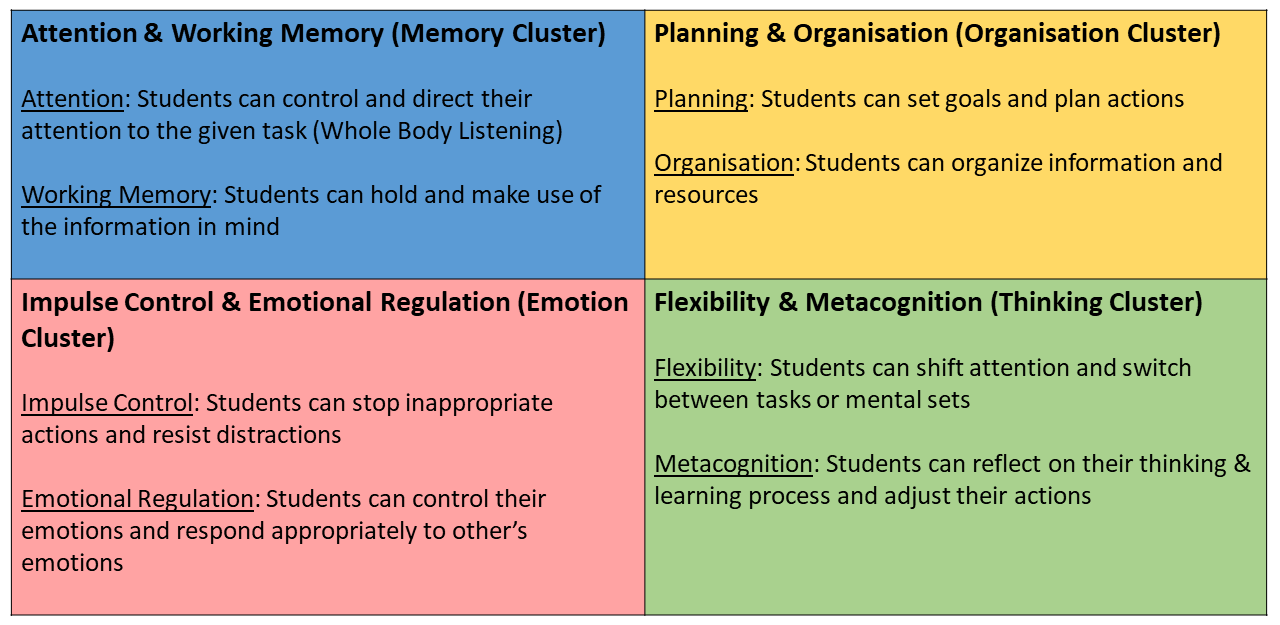
7 Habits for Highly Effective People
The school adopts the 7 Habits for Highly Effective People (https://www.franklincovey.com/the-7-habits) for the explicit teaching of leadership skills to our students. The key essence of the 7 Habits has been distilled into bite-sized learning packages tailored to lower/middle/upper primary levels, and taught by Form Teachers as part of the CHAMPS Leadership Programme . The 7 Habits provide students with applicable tools that they could practise in their daily lives, and serve to motivate them to make positive steps to improve in order to be more effective as a learner. This has also been extended to cater to student leaders through extended leadership training in 7 Habits, with a focus on application.
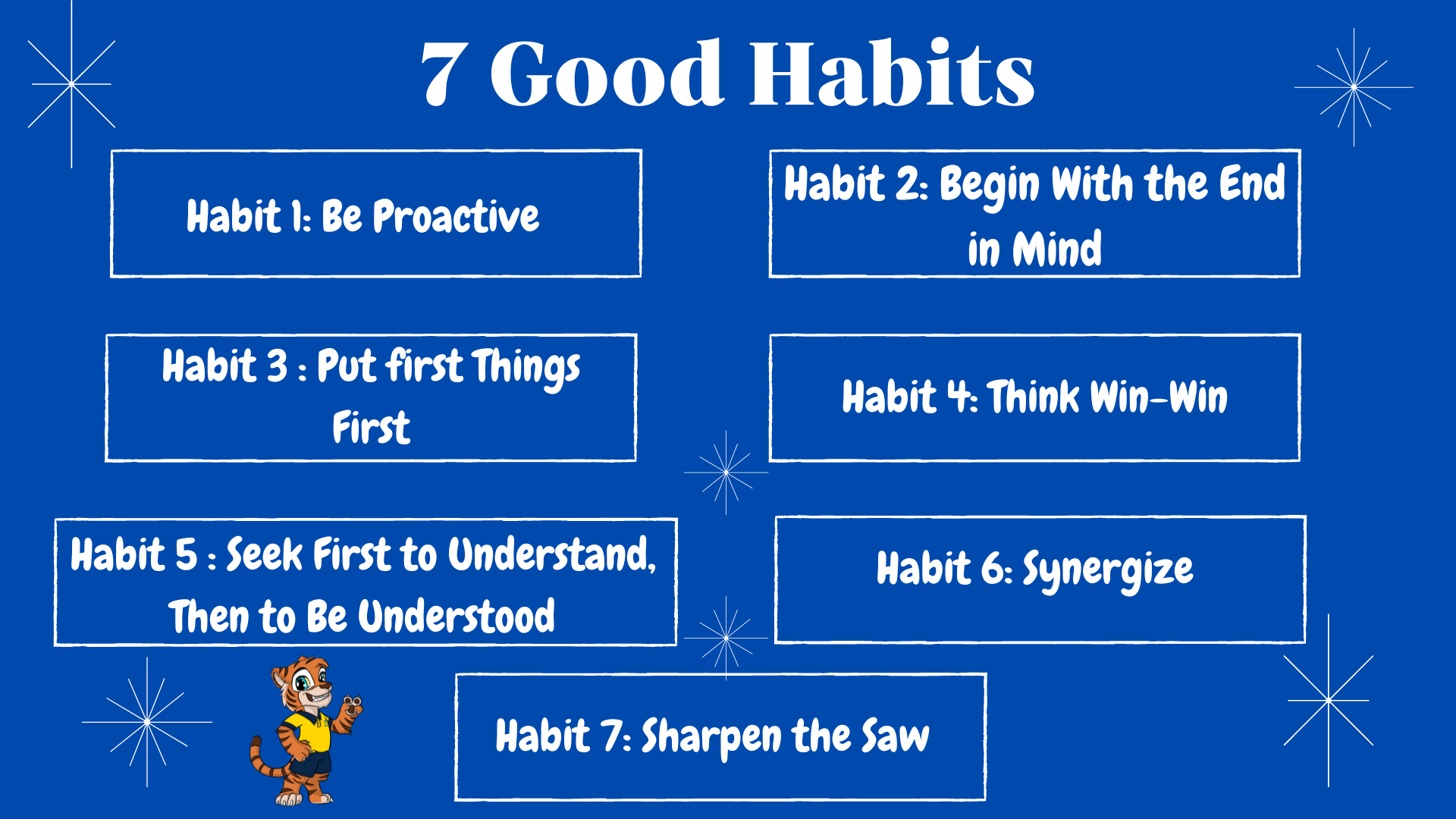
3. Attitudes
In KPS, we hope to actively cultivate and encourage our students to have a Growth Mindset. We want our students to relish challenges, embrace their mistakes as part of their learning process, value the importance of effort, respond carefully to feedback and take inspiration from others. This is in line with our school values of Resilience and Responsibility. These learning objectives are articulated through the 6 key messages below and are consistently reinforced to our students throughout their six years in the school.
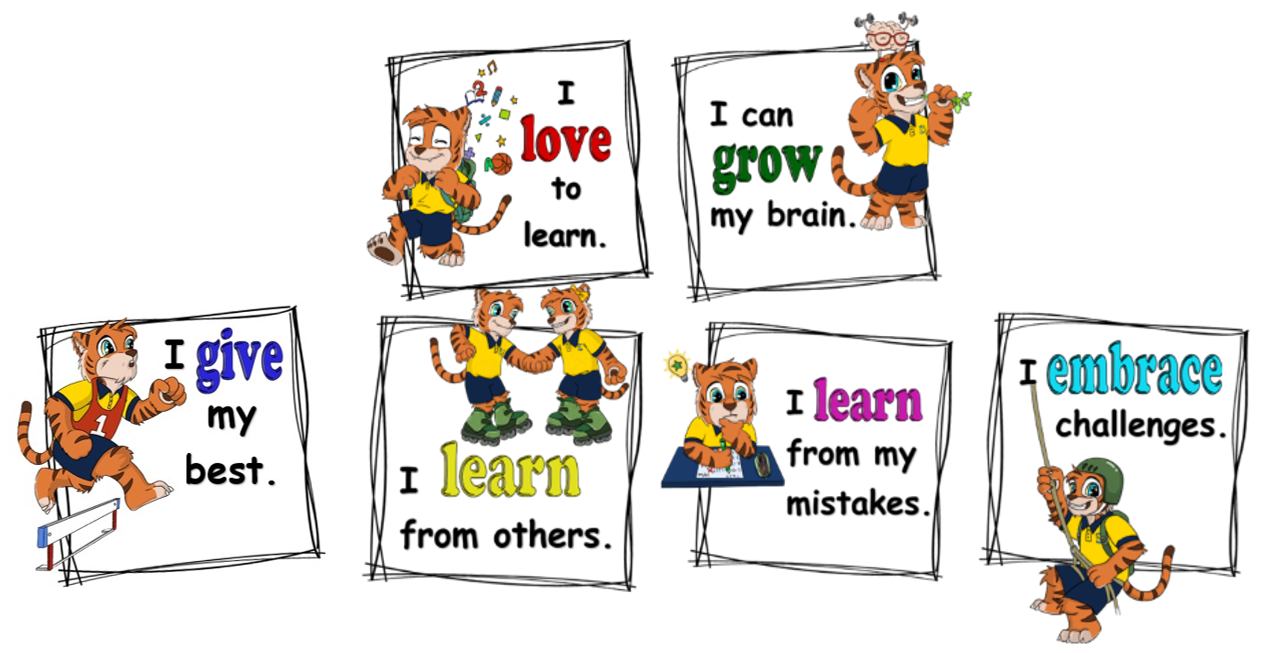
4. Knowledge
Knowledge of the subjects includes the concepts, facts, theories and skills, as well as how they are connected to present the disciplinarity of the subject, as set out in the syllabus for each subject.
Social-emotional competencies enable us to examine and understand our own thoughts and emotions, develop a sense of responsibility and concern for others, and act for the good of self, others, and the society. When we apply these competencies, we live out our values and grow our character.
-
The competencies related to developing self-awareness allow us to understand our emotions, thoughts, values, personal goals, and mind-sets, which enable us to construct an understanding of who we are.
-
The competencies related to social awareness enable us to develop cognitive and emotional empathy, understand the perspectives of people with different backgrounds or cultures, and to become more sensitive to the social environment and the needs of others.
-
The competencies for self-management enable us to self-regulate our emotions, thoughts and behaviours, to achieve personal well-being, to demonstrate pro-social behaviours, and to choose to be our best selves.
-
The competencies for relationship management enable us to build and maintain positive relationships with others in accordance to social norms and culture. We also develop empathy through practising perspective-taking, and understanding the impact and consequences of our actions on others.
-
Responsible decision-making enables us to apply moral reasoning and sound values-based judgements in the choices we make.

